
Salmon
We work with Scottish salmon farmers to supply RSPCA Assured Co-op Irresistible salmon, and with Norwegian salmon farmers to supply ASC-certified salmon.

At Co-op, protecting oceans, fish stocks and livelihoods is key to ensuring our members can enjoy seafood knowing it has been responsibly sourced. Our Healthy Oceans Strategy works to ensure we have fish for the future and thriving marine ecosystems.
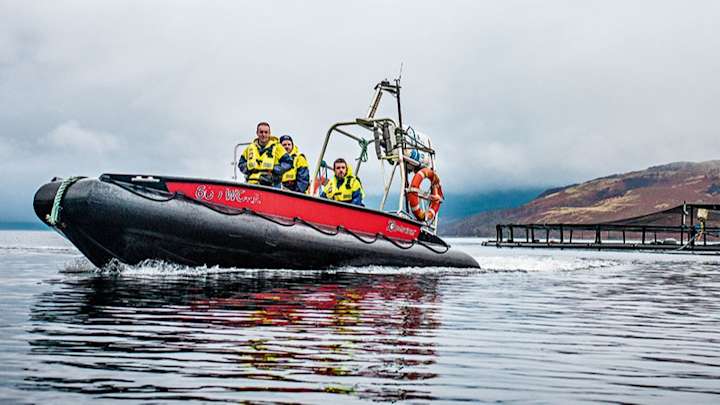
All Co-op seafood must meet our standards for sourcing fish responsibly. Our seafood standards have been in place since 2008 to ensure all seafood is sourced from well-managed farms and fisheries, minimising our impact on the marine environment.
As part of our Future of Food ambition, we are committed to protect our key ingredients and care for the environments they’re sourced from.
As a minimum, Co-op support credible certification where it drives change and work with key partners to take a restorative approach to ecosystems.
All farmed Co-op fish is certified to at least one of three independent schemes: Aquaculture Stewardship Council (ASC), Global Good Agricultural Practices (GGAP), or Global Aquaculture Alliance Best Aquaculture Practices (BAP 4-star). By 2027, Co-op will align all farmed seafood to the ASC standard as its primary certification scheme. All Co-op irresistible Scottish Salmon will remain RSPCA assured meaning it has to conform to higher welfare standards.
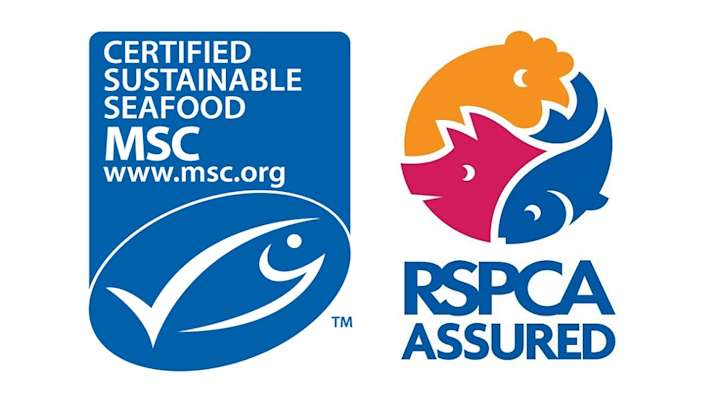
In 2024, 56% of Co-op wild-caught seafood products were Marine Stewardship Council (MSC) certified. The little blue fish logo on-pack means the fish is independently certified as sustainable. We also met our commitment to improve seafood sustainability, this makes us one of the top retailers in the UK selling sustainable fish. All Co-op tuna meets our responsible sourcing requirements and is fished using pole and line methods, which has a lower environmental impact than other fishing methods. We support fishery improvement projects (FIPs), like Nephrops MSC Improvement Program as a key step towards sustainability and certification and regularly review progress for these fisheries.
We are engaging with our farmed fish suppliers and the feed industry to ensure continuous improvement towards sustainable feed ingredients in our supply chains. This includes actively encouraging the use of sustainable novel ingredients. By risk assessing the feed ingredient we are able to holistically evaluate existing and novel feed ingredients. Our preferred standards for marine ingredients are MSC and Marin Trust (formerly IFFO RS). Co-op are also actively working on other key feed ingredients such as Soy and Palm Oil.
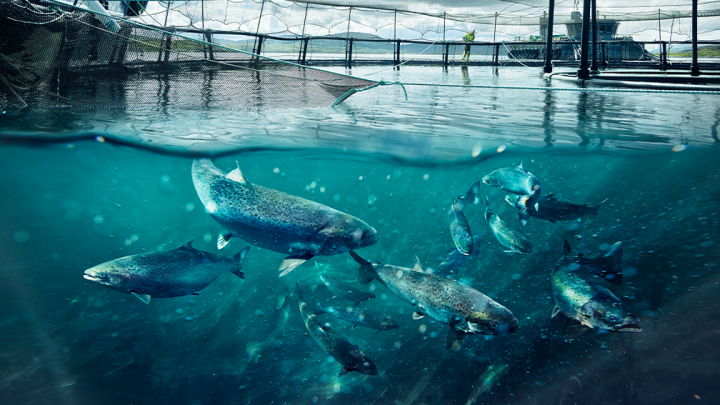
Co-op seafood is sourced globally, these range from Atlantic Salmon from Scotland, Seabass from Turkey and Prawns from Canada.
You can find out where the fish on your plate comes from on the Oceans Disclosure Project website. For the fourth year running we have taken part in this project, the profile covers all the farmed and wild-caught seafood sourced by the Co-op in 2025.
At Co-op, we are committed to responsible sourcing practices in our seafood supply chains and we have been working with our suppliers to eliminate the process of eye stalk ablation from our prawn supply chains. We are proud to announce that as of 2024, Co-op’s prawn supply chain is 100% eye stalk ablation-free and will remain so in the future.
We also recognise that the most humane method of slaughter for prawns is electrical stunning followed by mechanical killing and whilst this is not yet a standard practice across the global prawn industry, we are actively exploring its implementation. We are collaborating with our suppliers and specialists to identify how electrical stunning can be effectively introduced on prawn farms and in 2025, we will outline a comprehensive roadmap to integrate electrical stunning into our supply chain by 2027. Our goal is to implement this humane method as soon as possible, ideally ahead of schedule. This will apply to all our farmed prawns, whether they are sold fresh, frozen, or used as ingredients in all our own brand products.
Working together with the seafood industry is key to addressing the major global challenges faced by our supply chains and marine ecosystems.
All sourcing and labelling of our Co-op seafood products have met the Sustainable Seafood Coalition codes of conduct since we joined as a founding member in 2011. The coalition brings together major British businesses to make real changes in the seafood industry. We are also working with the Sustainable Fisheries Partnership to source the most sustainable seafood options and find solutions to challenges in the marine environment.
Co-op fully support collaborative initiatives to drive sustainability improvements in the seafood industry. We are members of the Global Tuna Alliance to help advocate for better management of tuna fisheries worldwide. We have also adopted the Global Dialogue on Seafood Traceability standards to help improve the traceability of our seafood supply chains.


We work with Scottish salmon farmers to supply RSPCA Assured Co-op Irresistible salmon, and with Norwegian salmon farmers to supply ASC-certified salmon.
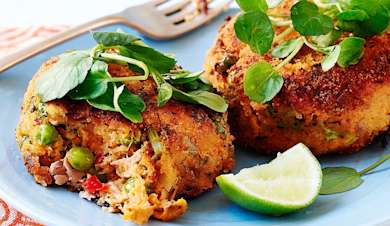
All Co-op tuna is sourced from fisheries using the pole & line method and are working towards more sustainable fisheries through fisheries improvement projects.
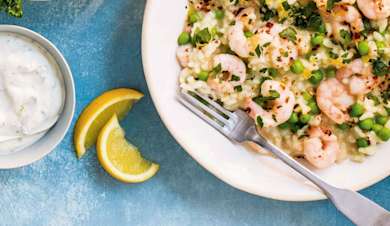
Co-op farmed warm water prawns are third party certified and sourced from South East Asia and Latin America. We are working with our suppliers to drive continuous improvement for environment and people in these supply chains. All Co-op cold water prawns are MSC certified.
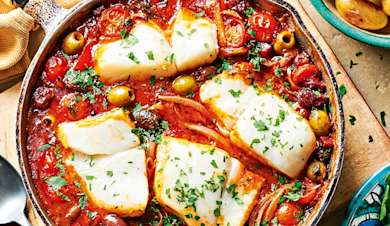
All of our cod and haddock is sourced from sustainable MSC certified fisheries.